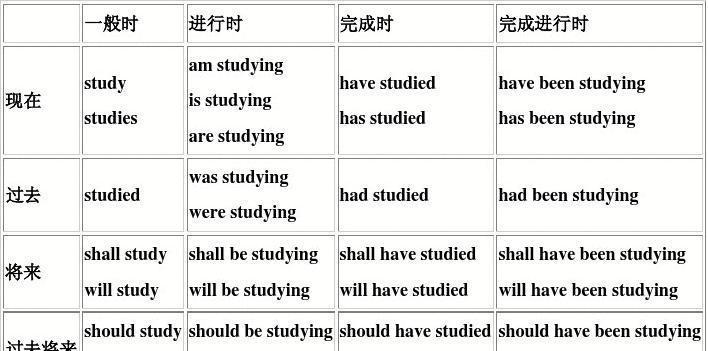英语动词"begin"在不同的时态下有不同的形式。在一般现在时下为"begins",在一般过去时下为"began",在现在进行时下为"beginning",在过去进行时下为"was/were beginning",在现在完成时下为"has/have begun",在过去完成时下为"had begun"。理解这些形式有助于更好地理解和运用英语语法。

一般现在时
我们可以用一般现在时来表达现在的状态或习惯。begin在一般现在时下的形式为begins,例如:
- She begins her work at 9am every day.(她每天早上9点开始工作。)
- The meeting begins in half an hour.(会议半小时后开始。)
一般过去时
一般过去时用来表示过去某个时间发生的动作或状态。begin在一般过去时下的形式为began,例如:
- He began to learn English when he was 10 years old.(他10岁时就开始学英语了。)
- The movie began at 7pm yesterday.(电影昨天晚上7点开始。)
现在进行时
现在进行时表示目前正在进行的动作。begin在现在进行时下的形式为beginning,例如:
- They are beginning to understand the importance of English.(他们正在开始理解英语的重要性。)
- The concert is beginning in a few minutes.(音乐会几分钟后开始。)
过去进行时
过去进行时表示过去某个时间正在进行的动作。begin在过去进行时下的形式为was/were beginning,例如:
- When I called him, he was beginning to cook dinner.(我给他打电话时,他正在开始做晚饭。)
- At this time last year, we were beginning to plan our trip.(去年这个时候,我们正在开始计划旅行。)
现在完成时
现在完成时表示过去某个时间已经完成的动作或状态对现在的影响。begin在现在完成时下的形式为has/have begun,例如:
- I have begun to read this book.(我已经开始读这本书了。)
- They have begun to see the benefits of learning a new language.(他们已经开始看到学习一门新语言的好处。)
过去完成时
过去完成时表示过去某个时间已经完成的动作或状态对过去的影响。begin在过去完成时下的形式为had begun,例如:
- When I arrived, they had already begun to eat.(我到达时,他们已经开始吃饭了。)
- By the time she got there, the party had already begun.(她到那里时,派对已经开始了。)

